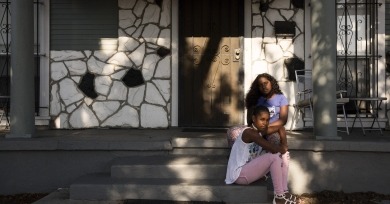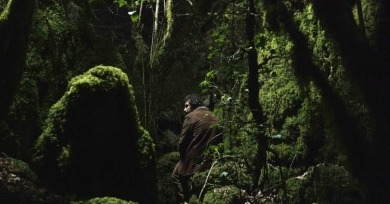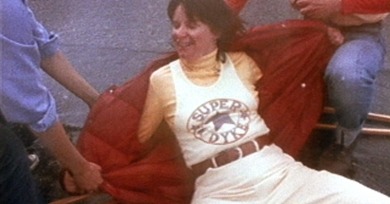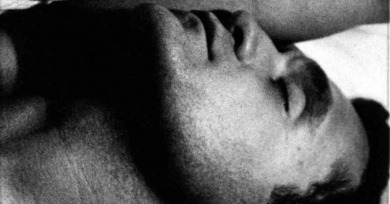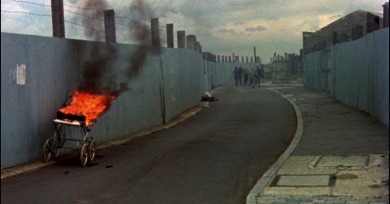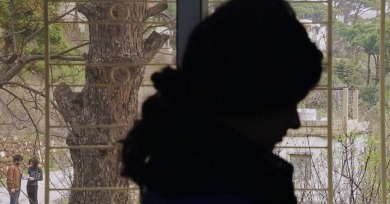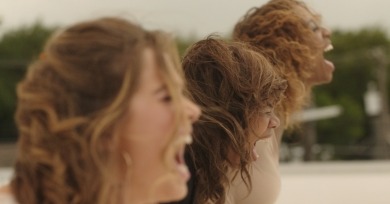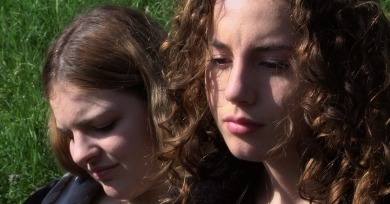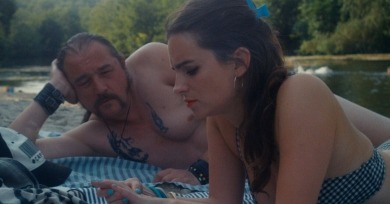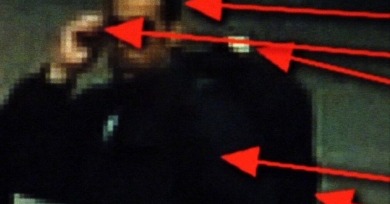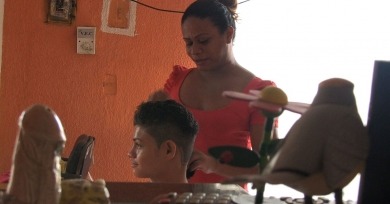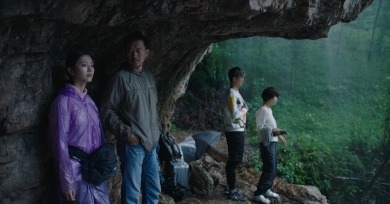Features
As a viewer and participant, I was increasingly aware that the objective of the festival was to be a space in which we questioned and looked closely at the historical work and power imbalances that have long existed within the documentary form.
Eloy Enciso’s Endless Night, Maya Da-Rin’s The Fever,Affonso Uchôa’s Seven Years in May, Ben Rivers and Anocha Suwichakornpong’s Krabi, 2562, James N. Kienitz Wilkins’s This Action Lies, Annie MacDonell’s Book of Hours, Sergei Loznitsa’s State Funeral, and more
Hammer craved ancestral knowledge. There were the early conquests of those who surrounded her. In later films, there was the unrequited challenge of women who came before her; these efforts endure most potently.
Close to hour five, his mouth flutters and he breathes a bit spastically, like he is about to wake up. Coming after the preceding stillness, the moment hits like an explosion in an action movie. But the film will end without him actually waking.
The tonal, visual, and thematic contrasts between these two masters of British filmmaking all seem to converge around their seemingly diametric views of mother England: a sober bulwark of civilization for Jennings; a largely hollowed-out husk for Jarman.
Gagnon makes work that’s legitimately punk as fuck—bleak, scabrous, and resounding with a madman’s cackle.
Toni Geitani’s debut feature focuses on the evanescence of historical and national memory as experienced by the first generation that did not see corpses lying in the streets but grew up surrounded by their ghosts.
Years in Review
Best Musical, Best Supporting Actor, Best New Old Movies, Most Irritating Camera Lens, Best Action Sequence, Best Remake, Trailer of the Year, and more!
Claire Simon has been working steadily in the cinema since a mid-1970s internship with Algerian filmmaker Mohammed Lakhdar-Hamina, and has been directing both narrative and nonfiction films for over 30 years now.
In fragmented short scenes intertwined by the turn of chance, Possible Faces keenly studies aimless characters whose lives pinball between despair and grasping the last vestiges of hope.
Schmitz whittles a leisurely yarn with only the most threadbare of narrative action. He shot with no formal script or framework in mind, content to merely observe in fixed, distant shots the desultory minutiae of his hapless subjects.
If, as the saying goes, the devil is in the details, then Chris Kennedy’s 36-minute marvel Watching the Detectives finds in that idea a working metaphor for the modern condition.
Ambulante Más Allá is a roving documentary festival launched in 2005 that provides the framework for building a inclusive independent filmmaking infrastructure, reclaiming an often maligned community and helping them curate their own identities on and off screen.
The Pluto Moment by Zhang Ming is a delightful, quietly subversive film that, under the veil of a personal story, smuggles in details about the current cultural moment in China.
